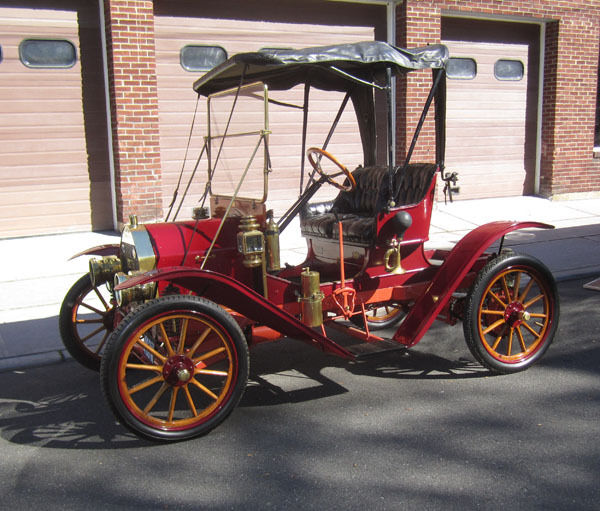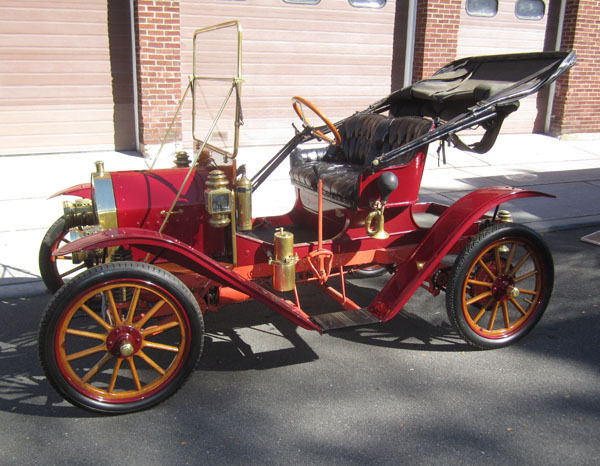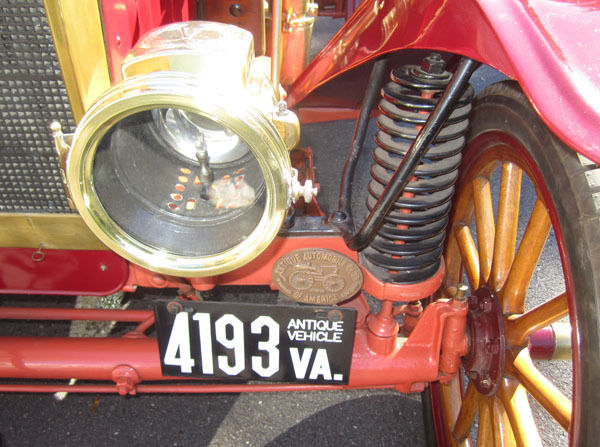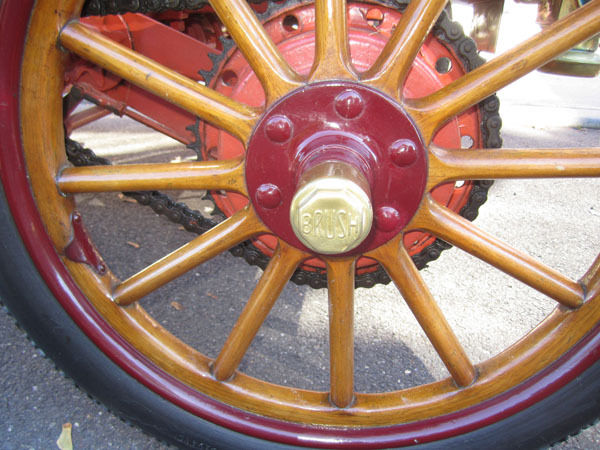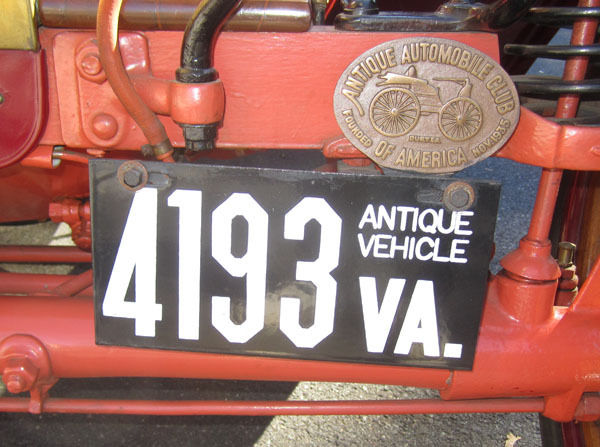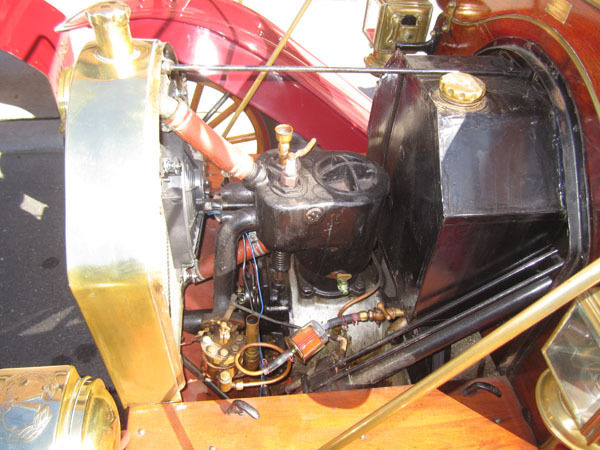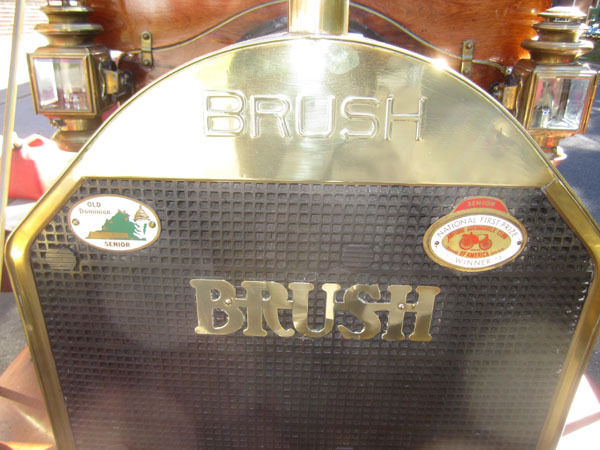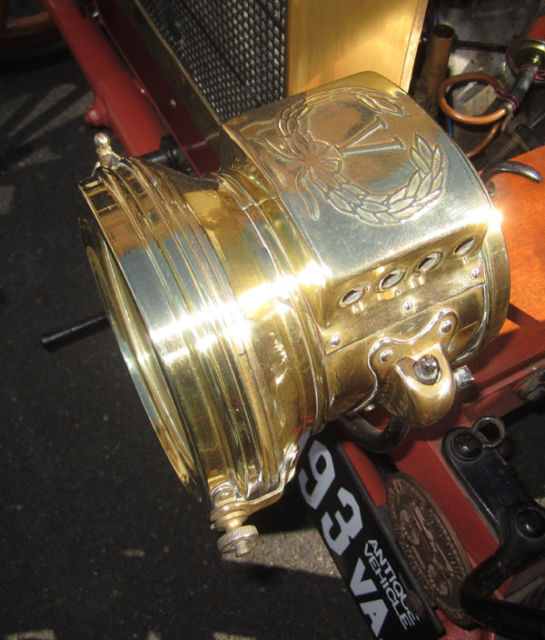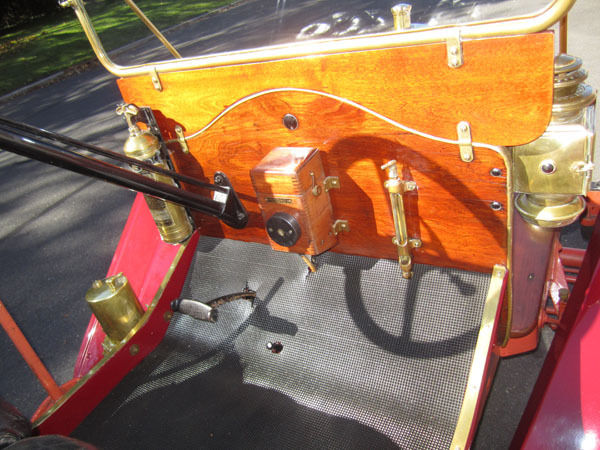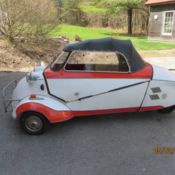1909 Brush. Brass Era Car. Very Rare. Running & Driving. AACA Winner
Technical specifications of Other Makes 1909
| Price: | - |
|---|---|
| Condition: | Used |
| Item location: | Neshanic Station, New Jersey, United States |
| Make: | Other Makes |
| Trim: | Leather |
| Year: | 1909 |
| Mileage: | 9,999 |
| VIN: | 1909 Brush |
| Color: | Maroon |
| Engine size: | 1 cylinder |
| Number of cylinders: | 1 |
| Fuel: | Gasoline |
| Drive type: | chain |
| Interior color: | Black |
| Options: | Leather Seats |
| Vehicle Title: | Clear |
| You are interested? | Contact the seller! |
Description
1909 Brush Runabout1 Cylinder Engine. 74HPRunning and DrivingWooden Frame, Wooden AxlesFormer AACA WinnerLeather InteriorLots of BrassClear TitleBrush Motor Car Company (1907-1909), later the Brush Runabout Company (1909-1913), was based in Highland Park, Michigan. The company was founded by Alanson Partridge Brush (February 10, 1878 in Michigan – March 6, 1952 in Michigan), who designed a light car with a wooden chassis (actually, wooden rails and iron cross-members), friction drive transmission and "underslung" coil springs in tension instead of compression on both sides of each axle. Although there were many makes of small runabouts of similar size and one to four cylinders at this time (before the Model T Ford dominated the low-price market), the Brush has many unusual design details showing the inventiveness of its creator. Power was provided by a large single-cylinder water-cooled engine. Two gas-powered headlamps provided light, along with a gas-powered light in the rear. The frame, axles, and wheels were made of oak, hickory or maple, and were either left plain or painted to match the trim. The horn was located next to the engine cover, with a metal tube running to a squeeze bulb affixed near the driver. A small storage area was provided in the rear, with a drawer accessible under the rear of the seat.
A feature of engines designed by Brush (who also designed the first Oakland Motor Car, ancestor of Pontiac and who helped design the original one-cylinder Cadillac engine) was that they ran counter-clockwise instead of the usual clockwise, which, in those days before the invention of the electric starter, was Brush's idea intended to make them safer for a right-handed person to crank-start by hand. With clockwise-running engines, many injuries were sustained, most often dislocated thumbs and broken forearms, if the hand crank kicked back on starting, especially if the car was not properly adjusted before starting, or the person cranking it did not follow correct safety procedures, including fully retarding the manual spark advance, keeping the thumb alongside the fingers instead of around the crank, and pulling the crank upward in a half turn, never in a full circle or pushing down.
In 1912, Sid Ferguson drove a Brush Runabout with Birtles as navigator, becoming the first persons to drive across the Australian continent from west to east.
The Brush Runabout Company, along with Maxwell-Briscoe, Stoddard-Dayton, and others formed Benjamin Briscoe's United States Motor Company from 1910, ending when that company failed in 1913. Runabouts, in general, fell out of vogue quickly, partly due to the lack of protection from the weather.
A restored 1909 Brush Runabout is on display at the Linn County Historical Museum in Brownsville, Oregon, with another under restoration at Old Rhinebeck Aerodrome for the New York State aviation museum's automotive collection.
Please email with any questions you may have. Should you need more information or pictures, send me your email address.I reserve the right to end this auction early as the car is also for sale locally. Please check our feedback and bid with confidence. I am available most days at 908-300-0000 to answer any questions you may have about this car, or just go through proper Ebay channels with your concerns. The car is also very available with an appointment, for inspections before auctions end. Any winning bid will be considered a binding contract to complete the purchase of the car. A non-refundable deposit of $1000 is required through pay-pal within 24 hours of closed of auction. Payment in full will be required from the winning bidder within 7 days of the close of the auction in the form of a bank wire transfer or cash. Transportation of the car will be the buyer’s responsibility. New Jersey residents add sales tax.
